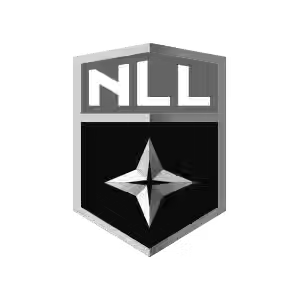What type of revenue can sporting leagues expect from sports betting?
- astraight49
- Aug 24, 2023
- 3 min read

By: Todd Ballard, Co-Founder/ CMO at ALT Sports Data
As ALT Sports Data continues to become the de facto solution for alternative sports leagues looking to enter the sports betting market, one of the first subjects often brought up for discussion pertains to the various streams of revenue that can be generated by a sports league through a sports betting initiative. While I still consider myself relatively new to the sports betting industry, I have spent the last couple of years immersing myself in knowledge and engaging with some of the industry's brightest and most experienced individuals and entities. Here, I'll break down the insights I've gained around this topic and touch on data, affiliate, sponsorship and streaming revenue..
Although the primary focus of this article revolves around ‘revenue, it's important to highlight the inherent values that sports betting brings to leagues. The most evident among these are increased fan engagement and accessibility to new fans. An internal perspective often shared is, "How much attention would the Kentucky Derby garner without a $2 bet?" Sports betting empowers fans with a vested interest in the outcomes, subsequently drawing more attention to the league, its teams, and players. As fans strive to gain an ‘edge’ to outsmart the odds, this engagement factor is enhanced.
Let's delve into the concept of ‘data’ within this context. ALT Sports Data, for instance, captures historical statistics and results (used for modeling betting markets, typically spanning at least 2-3 years) as well as real-time event data (feeding these models and adjusting market odds as events develop). For the latter, real-time and low-latency data is crucial to avoid situations where bettors gain access to critical information before sportsbooks.
Data Revenue has historically involved major leagues receiving compensation for providing data rights access to sportsbook operators (think FanDuel, DraftKings, etc), often with exclusivity. The actual revenue generated hinges on the volume and size of wagering transactions. The profit margins are narrow, and it has become increasingly challenging for new leagues to find data providers willing to invest in modeling for sports that might not initially generate substantial activity. Providers usually receive compensation based on a percentage of gaming revenue, mainly Net Gaming Revenue (NGR), which deducts losses and payouts from Gross Gaming Revenue (GGR). NGR's exact definition can vary between operators, but it typically represents net profit. In a sportsbook environment, the decision to include a new sport falls under the trading side of operations, with success gauged by transaction volume, profit margin and ultimately, earnings.
Affiliate Revenue forms a significant portion of sportsbook marketing strategies, where predetermined CPAs (cost-per-acquisition) are paid for first-time bettors referred by third-party licensed affiliate partners or vendors whose sole role is to capture new players to convert to sportsbooks. Several major affiliate networks own media platforms containing statistics, profiles, articles, and enticing content to encourage betting, alongside valuable tips and offers. Interestingly, most of these platforms don't yet cover information about newer or alternative sports. This presents an exclusive chance for leagues to leverage their established fan bases' trust and engagement by providing information on where and how to bet, alongside promoting responsible gaming. The affiliate side of sportsbooks generally falls under marketing and doesn't necessarily depend on the trading team's involvement with specific sports.
Sponsorship dynamics have shifted over the years. A while back, sportsbooks would sponsor non-bettable events. However, as operators grapple with profitability challenges, their approach to awareness and top-of-funnel advertising has evolved. Now, events are less likely to secure sportsbook sponsorships unless there's a bettable product involved. Once a sport or league becomes bettable, it becomes attractive for sportsbooks seeking to be official sponsors. This is due to the increased metrics available for tracking full funnel conversions. As with traditional sponsorships, the value is determined by factors like audience, content distribution, transaction volume, activation opportunities, signage, and more.
The significance of live-streaming content has been validated by the noticeable increase in players' inclination to bet when accompanied by live content. Consequently, numerous sportsbooks are willing to pay a premium for access to a live stream that they can feature within their applications. This compensation structure can be based on a seasonal, per-event basis, or even a percentage of NGR.
While a one-size-fits-all solution doesn’t exist, we are consistently collaborating with our partners, including both leagues and operators. Our aim is to discover the optimal formula that brings in new customers, enhances engagement, and ultimately generates additional revenue. This concerted effort is geared towards aiding these frequently overlooked leagues in their expansion journey, ultimately positioning them on an equal footing with the top-tier leagues in the industry.




Comments